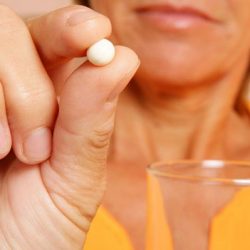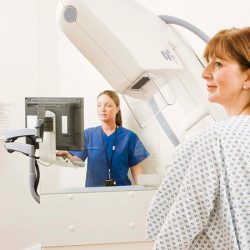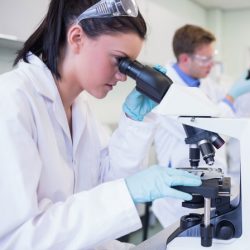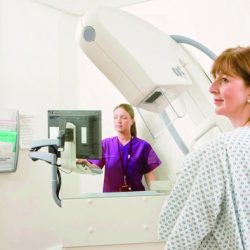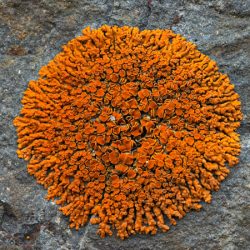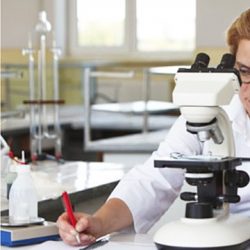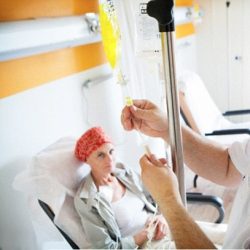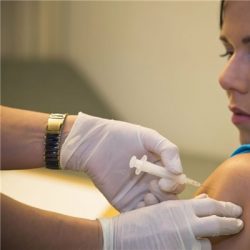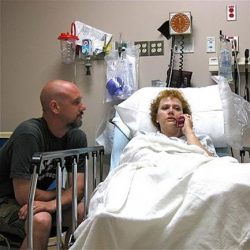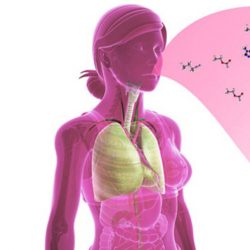Self-testing for Human Papillomavirus (HPV) -- the virus that causes cervical cancer -- is as effective at detecting cancer as a conventional smear test (cytology screening) even when scaled up to test large populations. Researchers from Queen Mary University of London conducted a pilot study of 100,242 Mexican women -- the largest study of its kind -- aged 25-75 and from … [Read more...]
Cancer News

Risk of developing cervical cancer decreased through human papillomavirus (HPV) vaccination: A Study
The risk of developing cervical cancer can be significantly decreased through human papillomavirus (HPV) vaccination. Despite calls from leading health and professional organizations for universal vaccination for girls ages 11 and 12, the most recently published national data indicate that only 14.5 percent of 11- and 12-year-old girls have received at least one dose of the HPV … [Read more...]
Black women less likely to benefit from early chemotherapy: Yale University
It is well documented that black, Hispanic, and Asian women typically develop advanced-stage breast cancer more often than white women. As a result, black women are more likely to receive neoadjuvant chemotherapy, or chemotherapy prior to surgery, in hopes of improving outcomes. However, a Yale Cancer Center study published recently in the Journal of Clinical Oncology found … [Read more...]
Cervical, vaginal cancer higher in women previously treated for pre-cancerous cells on cervix: A Swedish Study
Women previously treated for abnormal cells on the cervix (CIN3 or cervical intraepithelial neoplasia grade 3) are at an increased risk of developing and dying from cervical or vaginal cancer compared with the general female population and this risk accelerates above age 60, a paper published today suggests. Cytology screening to prevent cervical cancer is a … [Read more...]
Risk of colorectal cancer from eating processed meat: University of Southern California study
A common genetic variant that affects one in three people appears to significantly increase the risk of colorectal cancer from the consumption of processed meat, according to study published today in PLOS Genetics. The study of over 18,000 people from the U.S., Canada, Australia and Europe represents the first large-scale genome-wide analysis of genetic variants and dietary … [Read more...]
Healthy diet may reduce risk of ovarian cancer: American Association for Cancer Research
A healthy diet may reduce the risk of ovarian cancer in African-American women, according to data presented at the Eighth American Association for Cancer Research (AACR) Conference on the Science of Cancer Health Disparities in Racial/Ethnic Minorities and the Medically Underserved, held Nov. 13-16. "Because there is currently no reliable screening available for ovarian … [Read more...]
Lycopene found in tomato has cancer-fighting ability: University of Illinois Study
Years of research in University of Illinois scientist John Erdman's laboratory have demonstrated that lycopene, the bioactive red pigment found in tomatoes, reduces growth of prostate tumors in a variety of animal models. Until now, though, he did not have a way to trace lycopene's metabolism in the human body. "Our team has learned to grow tomato plants in suspension … [Read more...]
Obesity causes colorectal cancer: A Study
Obesity, rather than diet, causes changes in the colon that may lead to colorectal cancer, according to a study in mice by the National Institutes of Health. The finding bolsters the recommendation that calorie control and frequent exercise are not only key to a healthy lifestyle, but a strategy to lower the risk for colon cancer, the second leading cause of cancer-related … [Read more...]
World first blood cancer drug trial give promising results: University of Leicester
Researchers from the University of Leicester and Leicester's Hospitals have announced a breakthrough advance in the results of the world-first clinical trial with actual patients of a new drug to treat particular blood cancers. Results of an international clinical trial led by Dr Harriet Walter and Professor Martin Dyer from the Ernest and Helen Scott Haematological Research … [Read more...]
Adding ultrasound to breast screening results in higher rate of detection for women
Adding ultrasound to standard mammography tests in breast screening could result in improved rates of detection for breast cancer in women in Japan, according to a new study, published in The Lancet. Researchers led by Professor Noriaki Ohuchi, from Tohoku University Graduate School of Medicine, in Miyagi, Japan, recruited more than 70000 women in Japan aged between 40 and … [Read more...]
Standing and exercise linked to lower odds of obesity: American Cancer Society Study
Standing for at least one-quarter of the day has been linked to lower odds of obesity in a new study led by the American Cancer Society in collaboration with The Cooper Institute, the University of Texas, and the University of Georgia. The study appears in Mayo Clinic Proceedings. While sedentary behavior (such as watching TV and commuting time) has been linked to … [Read more...]
An aggressive treatment for Pancreas Cancer: University of New Mexico Study
Pancreas cancer remains one of the deadliest cancers worldwide. In the United States, it accounts for only three percent of all diagnosed cancers but it causes almost seven percent of all cancer deaths. A pancreas cancer diagnosis often comes after age 50 and after the cancer has spread, making it difficult to remove surgically. A new clinical trial that recently opened at the … [Read more...]
Drug for digestive problem also helpful to cancer patients: University of Chicago Study
Patients with advanced cancers who took a drug designed to relieve constipation caused by pain killers lived longer and had fewer reports of tumor progression than cancer patients who did not receive the drug, according to results presented Oct. 27 at the 2015 meeting of the American Society of Anesthesiologists in San Diego. This is the first study in humans to associate … [Read more...]
Breastfeeding and reduced risk of aggressive breast cancer linked: American Cancer Society Study
A large international study shows that breastfeeding is associated with a lower risk of developing an aggressive form of breast cancer called hormone-receptor negative. This new combined evidence shows the risk was reduced by up to 20% in women who breastfed. Published in Annals of Oncology, this breastfeeding meta-analysis is a collaboration between Breastcancer.org; Icahn … [Read more...]
Excess body weight and risk of colorectal cancer linked: A Study
Experts speaking at the 23rd United European Gastroenterology Week (UEG Week 2015) in Barcelona, Spain revealed compelling evidence of the link between excess body weight and risk of colorectal cancer (CRC). John Mathers, Professor of Human Nutrition from the Institute of Cellular Medicine at Newcastle University in the UK presented data showing an overall increase of 18% in … [Read more...]
Processed meat can cause cancer: World Health Organization Study
The International Agency for Research on Cancer (IARC), the cancer agency of the World Health Organization, has evaluated the carcinogenicity of the consumption of red meat and processed meat. Red meat After thoroughly reviewing the accumulated scientific literature, a Working Group of 22 experts from 10 countries convened by the IARC Monographs Programme classified the … [Read more...]
Lung cancer specialist brings new treatments: A Mexican Study
This year, more than 158,000 Americans are expected to die from lung cancer. That's a staggering number: it's more than all the deaths expected from breast, prostate, colon, rectum, bladder and skin cancers combined. But this grim statistic only spurs Yanis Boumber, MD, PhD, to work harder toward a cure. Boumber, a lung cancer doctor and scientist, recently joined the … [Read more...]
Canine companionship helps calm children undergoing cancer treatment: A Study
Although survival rates for children diagnosed with cancer have increased dramatically over the past 40 years, hard evidence of proven psychosocial benefits to improve quality of life among patients and families during treatment has remained elusive. Many hospitals have therapy dogs who visit with patients, and anecdotal evidence underscores the positive impact these … [Read more...]
Cancer survivors often have poor diets: A Study
While most cancer survivors in the United States are motivated to seek information about food choices and dietary changes to improve their health, a new study comparing their dietary patterns to federal guidelines indicates that they often fall short. Published early online in CANCER, a peer-reviewed journal of the American Cancer Society, the findings point to the need for … [Read more...]
Later age recommended for first screening mammogram is now 45: American Cancer Society Study
Among the changes in the American Cancer Society's updated breast cancer screening guideline is that women with an average risk of breast cancer should undergo regular, annual screening mammography beginning at age 45 years, with women having an opportunity to choose to begin annual screening as early as age 40; women 55 years and older should transition to screening every … [Read more...]
Vitamin D and calcium supplements fail to protect against colorectal cancer: A Study
A large, randomized study at 11 U.S. hospitals including Dartmouth-Hitchcock Medical Center found that vitamin D and calcium supplements fail to protect against developing colorectal cancer. The study results, published in the New England Journal of Medicine, did not support earlier observational studies suggesting a link between lower colorectal cancer risk with higher … [Read more...]
Orange lichens are potential source for anticancer drugs: A Study
An orange pigment found in lichens and rhubarb called parietin may have potential as an anti-cancer drug, scientists at Winship Cancer Institute of Emory University have discovered. The results are scheduled for publication on October 19 in Nature Cell Biology. Parietin, also known as physcion, could slow the growth of and kill human leukemia cells obtained directly from … [Read more...]
Telomerase enzyme play a significant role in aging and cancer: University of California Study
An enzyme called telomerase plays a significant role in aging and most cancers, but until recently many aspects of the enzyme's structure could not be clearly seen. Now, scientists from UCLA and UC Berkeley have produced images of telomerase in much higher resolution than ever before, giving them major new insights about the enzyme. Their findings, published online today by … [Read more...]
Nutrients turn on key tumor signaling molecule, fueling resistance to cancer therapy: University of California Study
Tumors can leverage glucose and another nutrient, acetate, to resist targeted therapies directed at specific cellular molecules, according to Ludwig Cancer Research scientists studying glioblastoma, a deadly brain cancer. The findings, published in the July 13 Proceedings of the National Academy of Sciences, demonstrate that nutrients can strongly affect the signaling … [Read more...]
Cancer discovery links experimental vaccine and biological treatment: University of Wisconsin-Madison Study
A new study at the University of Wisconsin-Madison has linked two seemingly unrelated cancer treatments that are both now being tested in clinical trials. One treatment is a vaccine that targets a structure on the outside of cancer cells, while the other is an altered enzyme that breaks apart RNA and causes the cell to commit suicide. The study was published July 13 in the new … [Read more...]
Women: A longer break from work leads to less interest in a career: A German Study
Family policy influences not only families’ economic behaviour, but also sends out clear normative signals on which people base their individual life plans: The longer a mother takes a break from work after the birth of a child, the more she loses interest in her own career: Professor Markus Gangl and Dr. Andrea Ziefle, sociologists at Goethe University in Frankfurt, are now … [Read more...]
New treatment for bladder cancer: A Spanish Study
Universitat Autònoma de Barcelona researchers have found a mycobacterium that is more effective in treating superficial bladder cancer and does not cause infections, unlike those used up to now. Mycobacteria are the only bacteria used in cancer treatment. The administration of the bacterium Mycobacterium bovis (BCG), is the current treatment for superficial bladder cancer. … [Read more...]
Sniffing out cancer with improved ‘electronic nose’ sensors
Scientists have been exploring new ways to "smell" signs of cancer by analyzing what's in patients' breath. In ACS' journal Nano Letters, one team now reports new progress toward this goal. The researchers have developed a small array of flexible sensors, which accurately detect compounds in breath samples that are specific to ovarian cancer. Diagnosing cancer … [Read more...]
Esophageal Cancer: Killing a Silent Killer
This year alone, 17,000 Americans will be diagnosed with esophageal cancer and 16,000 of them will die from it. People who have Barrett’s esophagus, a condition where normal tissue in the esophagus changes due to acid reflux, are at the highest risk of getting the disease. Now, there is more information on treatment options for those with this difficult disease. Seventy-two … [Read more...]
Spiritual beliefs relate to cancer patients’ physical, mental, and social well-being: A Study
Research reveals that most individuals with cancer have religious and spiritual beliefs, or derive comfort from religious and spiritual experiences. But what impact does this have on patients' health? Recent analyses of all published studies on the topic--which included more than 44,000 patients--shed new light on the associations of religion and spirituality with cancer … [Read more...]
- « Previous Page
- 1
- …
- 5
- 6
- 7
- 8
- 9
- …
- 37
- Next Page »








